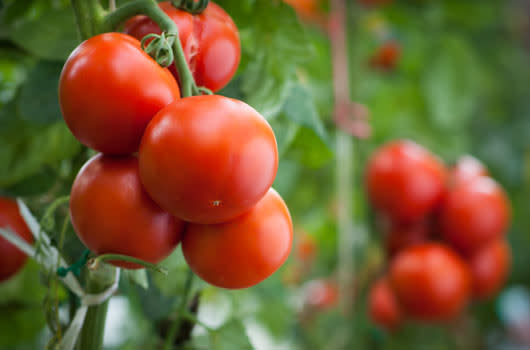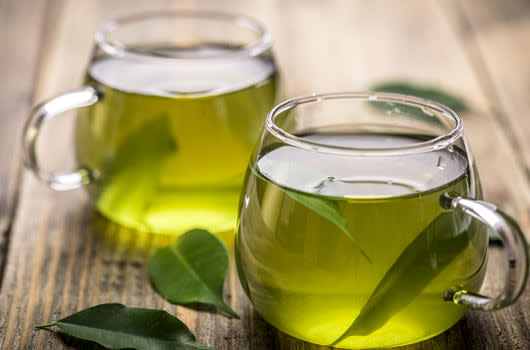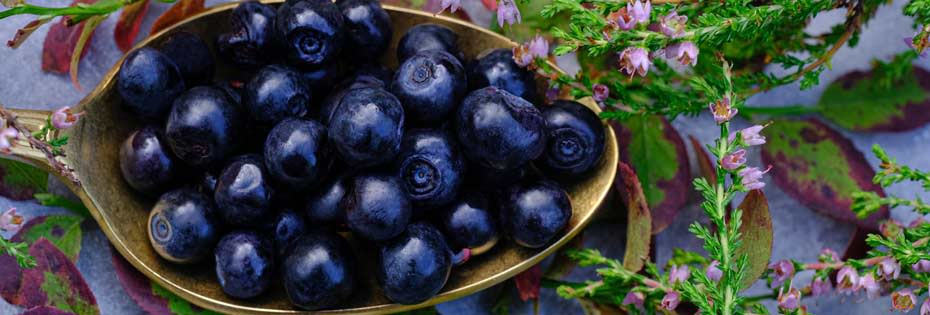What is quercetin? Benefits, uses and properties
Not many of us have heard of quercetin before, let alone know what it does. In this article we’re going to take a closer look at it, find out what the benefits are and which foods it can be found in.
Quercetin is a type of plant molecule known as flavanoid; flavanoids are plant compounds known for their multiple health benefits1. We typically get these from all sorts of foods in our diet, and quercetin is the most abundant flavanoid in the diet.
What foods contain quercetin?

Quercetin naturally occurs in lots of plants, fruits and vegetables in different forms. There is no set amount for quercetin intake2. It’s estimated that the average person gets about 25mg a day of quercetin through their diet, but this can vary depending on the country. People with a very high intake of fruit and vegetables can get up to 250 mg of quercetin a day3 through their diet.
Some data suggests that organic foods contain higher levels but it can also depend on where and how the food is grown. How the food is prepared can also have an effect on how it’s absorbed and its levels. For example, cooking, frying or baking can all affect how well you can absorb quercetin from plant sources3.
Onions are one of the main sources, followed by tomatoes and cabbages. Other sources include apples, berries, broccoli, as well as tea and wine. The highest concentration is found in raw capers and the lowest is in black or green tea3.
Why should I take quercetin?
Quercetin is considered to have antioxidant and anti-inflammatory properties. Because of this, it is thought that it can support the immune system,and that it can help those with certain allergies, asthma, high blood pressure and support good cardiovascular health4.
It is an antioxidant

Several of the health benefits of quercetin have been attributed to its antioxidant activity. Quercetin is very efficient at protecting the body from the potential harm caused by free radicals. A free radical is a type of unstable molecule that looks to bond to other molecules causing oxidative stress. This can damage the body’s cells, leading to disease and premature ageing. Quercetin can reduce oxidative stress and protect cells from the toxic effect caused by lots of free radicals4.
Quercetin has been shown to have indirect antioxidant activity by increasing the activity of some of the enzymes responsible for fighting free radicals4.
It will support your immune health
Like other polyphenols, quercetin can help regulate the immune system and support its normal function. It can do so because it is able to modulate the action of some inflammatory pathways4,6.
Quercetin has been shown to help ease allergy symptoms7,9. Allergies occur when our immune system has an exaggerated response against a molecule, also known as an allergen. Allergic responses are mainly mediated by antibodies, which will bind to specific immune cells and cause the release of histamine. This triggers a quick inflammation response to remove the allergen molecules. In extreme cases this can lead to acute respiratory failure (anaphylactic shock)10.
Quercetin has also been touted to have some antiviral and antimicrobial activity, too11,12. When combined with other vitamins such as vitamins C and D in a supplement, it offers even more potential benefits when it comes to immunity13,14. So, as an extra layer of protection, you might want to consider quercetin supplementation as the cold and flu season approaches.
It may improve your heart health
Thanks to its antioxidant properties, quercetin has some potential cardiovascular benefits.
Oxidative stress is a main cause of dysfunction of the endothelium, the thin membrane that lines the inside of the heart and blood vessels. The antioxidant effect of quercetin means it can scavenge free radicals and inhibit lipid peroxidation, which can protect against damage15.
Plaque formation, the buildup of fat plaques in the artery walls, is an early step of atherosclerosis. Protection against lipid oxidation also could have an anti-atherosclerotic effect, by preventing the oxidation of particles, which are known to be at the base of many cardiovascular problems15.
Quercetin and asthma

A recent study looked at the effect of an easier to absorb form of quercetin in the prevention and management of asthma. Over 30 days, 60 healthy volunteers with mild-moderate asthma were given either standard care management (such as nasal drops and/or corticosteroid inhalers) or this plus quercetin supplementation. The quercetin group was further divided into two groups: lower vs higher dose. After this time, both groups of people receiving supplements had an improvement in their symptoms, compared to the group who were just taking standard medication. Both low and high dose-quercetin groups showed an improvement in their symptoms, plus a reduction in the use of inhalers and nasal drops compared to the control group9.
Quercetin and COVID-19
Currently there is no solid evidence that quercetin can be used as a treatment for COVID-19 (coronavirus). In test tube cell studies, quercetin has been shown to inhibit protease activity in human coronaviruses such as SARS or MERS. Protease activity is essential for virus replication16. Some studies are currently underway, looking at the effect of quercetin on COVID-1917,18. It’s a long way off before we fully understand the role of quercetin in this particular infection.
So, if like many of us, you are thinking more about your immune health, this new supplement quercetin, could be something to consider adding to your daily regime. Rich in antioxidants, with anti-inflammatory and immunity supporting properties it could provide you with peace of mind, along with its many potential health benefits.
References
1. Kelly GS. Quercetin. Monograph. Altern Med Rev. 2011; 16(2):172-194.
2. Li Y, Yao J, Han C, Yang J, Chaudhry MT, Wang S, Liu H, Yin Y. Quercetin, inflammation and immunity. Nutrients. 2016; 8(3):167
3. Bhagwat S, Haytowitz DB, Holden JM. USDA database for the flavonoid content of selected foods, Release 3.1. 2014. US Department of Agriculture. Beltsville, MD, USA.
4. Batiha GE, Beshbishy AM, Ikram M, Mulla ZS, El-Hack MEA, Taha AE, Algammal AM, Elewa YHA. The pharmacological activity, biochemical properties, and pharmacokinetics of the major natural polyphenolic flavonoid: Quercetin. Foods. 2020; 9(3):374
5. Li Y, Yao J, Han C, Yang J, Chaudhry MT, Wang S, Liu H, Yin Y. Quercetin, inflammation and immunity. Nutrients. 2016; 8(3):167
6. Tőzsér J, Benkő S. Natural compounds as regulators of NLRP3 inflammasome-mediated IL-1β production. Mediators Inflamm. 2016; 2016:5460302
7. Jafarinia M, Sadat Hosseini M, Kasiri N, Fazel N, Fathi F, Ganjalikhani Hakemi M, Eskandari N. Quercetin with the potential effect on allergic diseases. Allergy Asthma Clin Immunol. 2020; 16:36
8. Shaheen SO, Sterne JA, Thompson RL, Songhurst CE, Margetts BM, Burney PG. Dietary antioxidants and asthma in adults: population-based case-control study. Am J Respir Crit Care Med. 2001; 164(10 Pt 1):1823-1828
9. Cesarone MR, Belcaro G, Hu S, Dugall M, Hosoi M, Ledda A, Feragalli B, Maione C, Cotellese R. Supplementary prevention and management of asthma with quercetin phytosome: a pilot registry. Minerva Med. 2016; 110(6):524-529.
10. Galli SJ, Tsai M, Piliponsky AM. The development of allergic inflammation. Nature. 2008; 454(7203):445-454.
11. Bachmetov L, Gal-Tanamy M, Shapira A, Vorobeychik M, Giterman-Galam T, Sathiyamoorthy P, Golan-Goldhirsh A, Benhar I, Tur-Kaspa R, Zemel R. Suppression of hepatitis C virus by the flavonoid quercetin is mediated by inhibition of NS3 protease activity. J Viral Hepat. 2012; 19(2):e81-e88
12. Lu NT, Crespi CM, Liu NM, Vu JQ, Ahmadieh Y, Wu S, Lin S, McClune A, Durazo F, Saab S, Han S, Neiman DC, Beaven S, French SW. A Phase I dose escalation study demonstrates quercetin safety and explores potential for bioflavonoid antivirals in patients with chronic hepatitis C. Phytother Res. 2016; 30(1):160-168
13. Colunga Biancatelli RML, Berril M, Catravas JD, Marik PE. Quercetin and vitamin C: an experimetnal, synergistic therapy for prevention and treatment of SARS-CoV2 related disease (COVID-19). Front Immunol. 2020; 11:1451.
14. Kallio J, Jaakkola M, Mäki M, Kilpeläinen P, Virtanen V. Vitamin C inhibits staphylococcus aureus growth and enhances the inhibitory effect of quercetin on growth of Escherichia coli in vitro. Planta Med. 2012; 78(17):1824-1830.
15. Deng Q, Li XX, Fang Y, Chen X, Xue J. Therapeutic potential of quercetin as an antiatherosclerotic agent in atherosclerotic cardiovascular disease: a review. Evid Based Complement Alternat Med. 2020; 2020:5926381
16. Jo S, Kim H, Kim S, Shin DH, Kim MS. Characteristics of flavonoids as potent MERS-CoV 3C-like protease inhibitors. Chem Biol Drug Des. 2019; 94(6):2023-2030
17. ClinicalTrials.gov [Internet]. Trial to study the adjuvant benefits of quercetin phytosome in patients with COVID-19. Bethesda (MD): National Library of Medicine (US). Identifier NCT04578158. October 7, 2020.
18. ClinicalTrials.gov [Internet]. Effect of quercetin on prophylaxis and treatment of COVID-19. Bethesda (MD): National Library of Medicine (US). Identifier NCT04377789. May 6, 2020.

